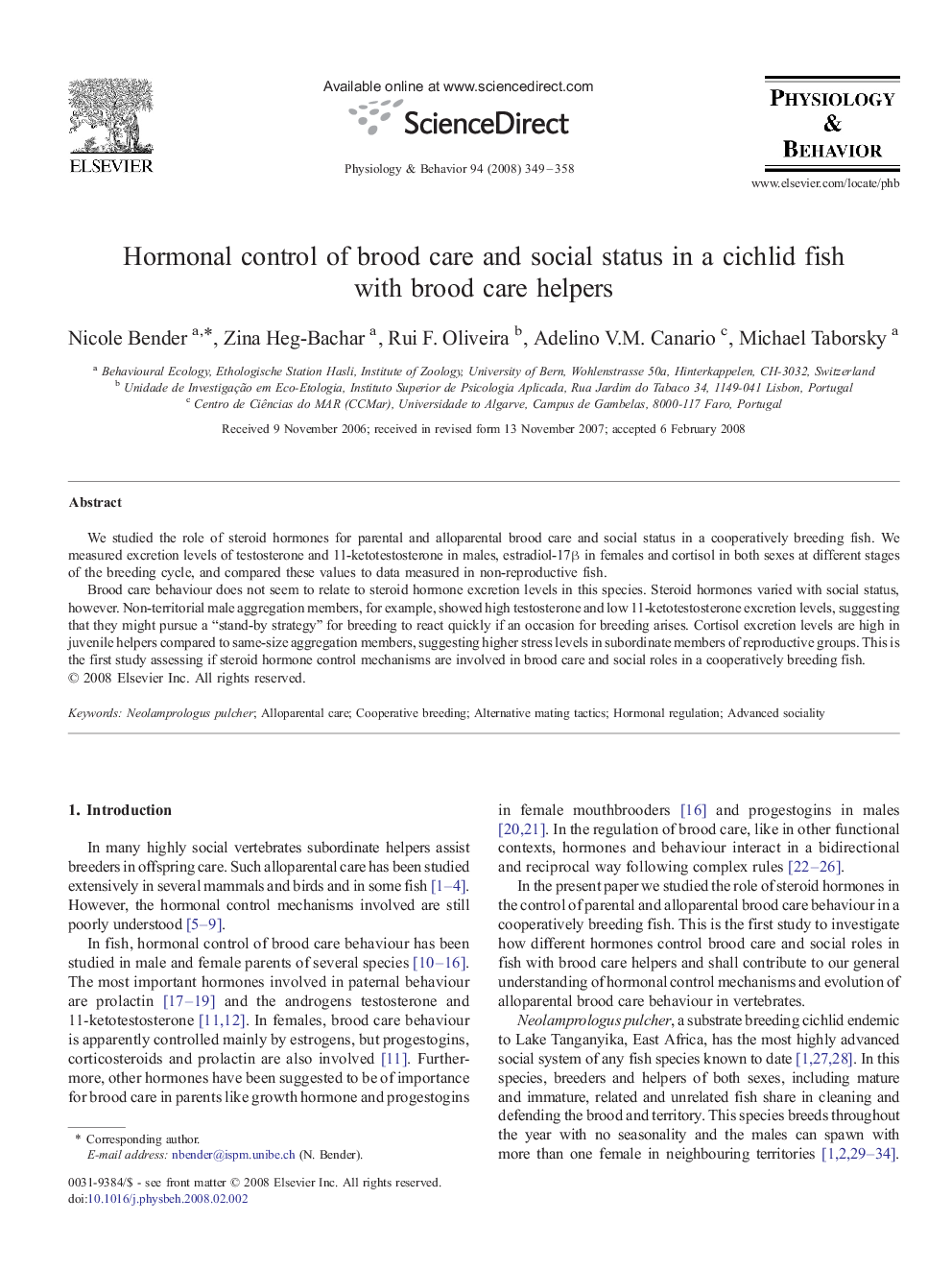| Article ID | Journal | Published Year | Pages | File Type |
|---|---|---|---|---|
| 2845414 | Physiology & Behavior | 2008 | 10 Pages |
We studied the role of steroid hormones for parental and alloparental brood care and social status in a cooperatively breeding fish. We measured excretion levels of testosterone and 11-ketotestosterone in males, estradiol-17β in females and cortisol in both sexes at different stages of the breeding cycle, and compared these values to data measured in non-reproductive fish.Brood care behaviour does not seem to relate to steroid hormone excretion levels in this species. Steroid hormones varied with social status, however. Non-territorial male aggregation members, for example, showed high testosterone and low 11-ketotestosterone excretion levels, suggesting that they might pursue a “stand-by strategy” for breeding to react quickly if an occasion for breeding arises. Cortisol excretion levels are high in juvenile helpers compared to same-size aggregation members, suggesting higher stress levels in subordinate members of reproductive groups. This is the first study assessing if steroid hormone control mechanisms are involved in brood care and social roles in a cooperatively breeding fish.
